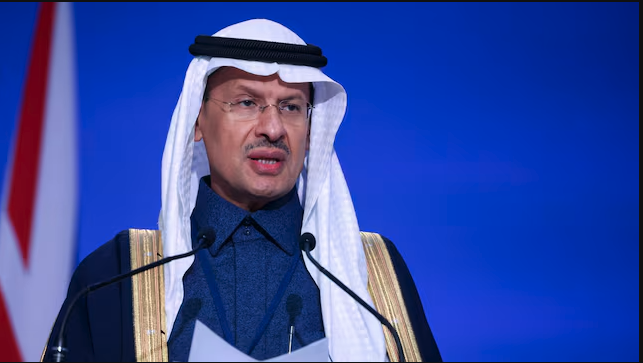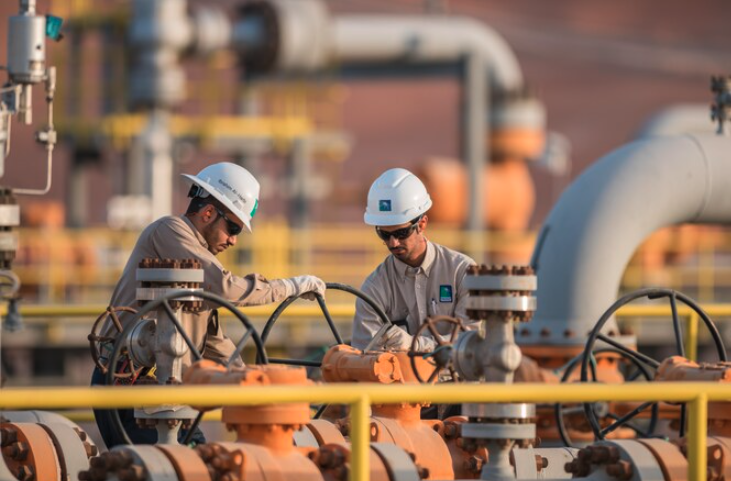RIYADH: Increasing visitor numbers to the cultural and tourism hub of AlUla is already delivering a boost to Saudi Arabia’s economy in line with Vision 2030 ambitions, experts have told Arab News.
Situated in the northwest of Saudi Arabia and covering around 22,000 sq. km, the Kingdom’s historic city also boasts a thriving agricultural sector that plays a pivotal role in its economic development.
Built upon social, economic, and ecological principles, the Royal Commission for AlUla has outlined a strategic roadmap for the comprehensive development of the area, with the primary objective of assisting the Kingdom in diversifying beyond oil and contributing to the national gross domestic product.
This strategy encompasses three main pillars: tourism, heritage, and nature; local community; and economic diversification.
Phillip Jones, chief tourism officer at RCU, told Arab News: “AlUla is an integral part of the tourism objectives driven by Saudi Vision 2030. With AlUla’s regional economy primarily driven by tourism, by 2035, AlUla will contribute a cumulative SR120 billion ($31 billion) to the Kingdom’s GDP.”
He said the RCU is following a “light-touch” tourism model to ensure the continued conservation of AlUla’s natural and cultural heritage.
Jones also highlighted that AlUla hosted over 260,000 visitors last year, marking a 43 percent increase from the previous year, and projected that it would welcome more than 290,000 visitors in 2024.
“We are also on track to achieve 2 million visitors annually by 2035.”
Tourism infrastructure
Across the Kingdom, the transformative economic impact of tourism is in full swing.
In 2024, AlUla is poised to welcome two new hotels: Dar Tantora in the second quarter of the year and Hegra Boutique Hotel in the final quarter.
These new additions will join Habitas and Banyan Tree, core hotels that opened in 2021 and 2022 respectively.
Additionally, in the coming years, AlUla will also welcome AZULIK AlUla Resort, Sharaan Resort, and the International Summit Centre, among others.
“AlUla’s emergence as an expansive archeological, cultural, and tourism hub, equivalent in size to Belgium, is a significant milestone in Saudi Arabia’s economic diversification and global outreach enhancement efforts,” Ali Haider, regional director for Middle East and Africa at Nomadic, a subsidiary of Fragomen, told Arab News.

With AlUla’s regional economy primarily driven by tourism, by 2035, AlUla will contribute a cumulative SR120 billion ($31 billion) to the Kingdom’s GDP.
Phillip Jones, chief tourism officer at RCU
“As AlUla continues to develop, it is poised to attract a diverse range of visitors, both locally and internationally, in line with Saudi Arabia’s aim of attracting 150 million visitors by 2030 and having the tourism sector contribute $200 billion to the economy,” Haider added.
This development comes as RCU recently launched its first global brand campaign – “Forever Revitalising” – which Jones described as the embodiment of their vision for AlUla.
This showcases the commission’s commitment to not just preserving AlUla’s historical essence but also enhancing the region’s eternal appeal, according to the executive.
“We will continue to see the economic benefits of smart, sustainable development as we welcome more international visitors with new international flights, new luxury accommodations, and our year-round activities and attractions,” RCU’s Jones reiterated.
Haider emphasized how a surge in tourism will also lead to increased demand for ancillary services such as accommodation, transportation, tour guides, and dining establishments.
“By investing in destinations such as AlUla, the Kingdom aims to reduce its dependency on oil revenue and create new, sustainable sources of economic growth as well as preserve and promote its cultural heritage,” the Nomadic executive highlighted.
Workforce and talent acquisition
As the region undergoes development, there will likely be tangible improvements to the Kingdom’s broader talent acquisition and retention metrics across various sectors.
“While increasing demand for tourism to destinations like AlUla will create jobs locally within the tourism sector and other supporting sectors, visitors to AlUla may also leverage their stay to visit other parts of the Kingdom, or even the broader region, and thereby broaden the economic impact of their visit,” Haider explained.
He continued by stating that this could foster the development of lesser-known tourism destinations. Additionally, he mentioned that the global uptake of “bleisure travel” might result in visitors staying in the Kingdom for longer periods and potentially exploring the local business landscape.
He emphasized that due to several recent enhancements, this was more attractive than ever.
Bleisure travel refers to the blending of business and leisure activities within a single trip.
“Furthermore, AlUla’s potential to attract international talent will facilitate knowledge exchange and collaboration, leading to the transfer of skills and expertise to the local workforce,” Haider underlined.
He pointed out that the Kingdom’s ambitious target of creating over 1 million jobs within the tourism industry by 2030 reflects its commitment to leveraging both local and global talent to drive economic growth in multiple ways.
Additionally, he explained that creating those jobs “hinges on effective implementation strategies and sustained investment in infrastructure and human capital development.”
Saudi Arabia also has one of the youngest populations globally, with 63 percent of Saudis under the age of 30.
“The youth represent a significant advantage for the country’s diversification ambitions, offering a skilled, innovative, and cost-effective workforce. Additionally, it fosters entrepreneurship and accelerates technology adoption over the long term,” he emphasized.
Haider also highlighted how the fresh perspectives and digital proficiency of this demographic have the potential to propel the growth and competitiveness of Saudi Arabia’s economy on a global scale.
“Considering the Kingdom’s proactive approach to tapping into international talent pools – as evidenced by the recently enhanced Premium Residency Permit scheme – as well as its broader commitment to economic diversification coupled with AlUla’s strategic significance as a tourism destination, there is optimism that this initiative will contribute significantly to job creation,” he explained.
From RCU’s perspective, the people of AlUla are at the center of their strategy, and they are among the primary beneficiaries of the diversified economy.
“In the process, we expect to create around 40,000 new jobs by 2035, which will be filled mainly by talent from AlUla and across Saudi Arabia,” Chief Strategy and Digital Officer at RCU, Waleed Al-Dayel, told Arab News.
He added that RCU has already created “thousands of new jobs, trained thousands of Saudis in critical job skills to match the requirements of the new positions, provided language training and scholarships, and reduced the local jobless rate by more than half.”
Sustainable destination
There is no doubt that AlUla also plays a vital role in sustainability.
Al-Dayel explained that RCU’s development of the city into a world-class sustainable destination for tourism and investment was guided by the 12 principles of the AlUla Sustainability Charter, aligning with the goals of Saudi Vision 2030 and the Saudi Green Initiative.
The executive further elaborated on the increasing number of initiatives registered with the Saudi Ministry of Energy and Ministry of Environment, Water, and Agriculture. These are specifically focused on key sustainable growth initiative objectives.
“RCU’s comprehensive vision is transforming AlUla into a global sustainable destination where our community of residents, tourists, and future generations can thrive,” Al-Dayel highlighted.
In terms of transport strategy, the governorate’s residents and visitors prioritize eco-friendly options in line with the AlUla Sustainability Charter, as well as the national transport strategy’s aim to enhance the quality of life through improved transport services.
Al-Dayel also shed light on how RCU is developing a future transport model for AlUla, with a low-carbon tram line at its core, surrounded by pedestrian, equestrian, and biking trails. This model also supports the needs for individual vehicles and freight.
“When combined with the increase in open green spaces and revitalized urban design, the future of transport in AlUla will greatly contribute to the improved quality of life,” he concluded.






























